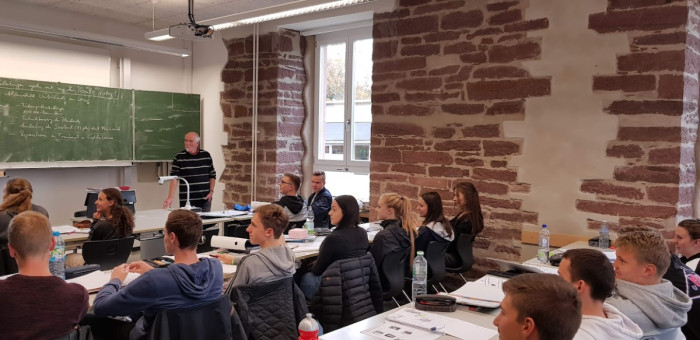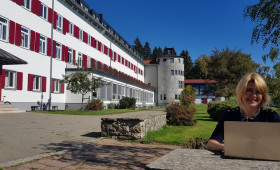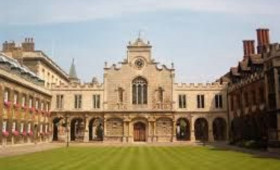How to choose the right educational program (IB, A-Level, Advanced Placement, Abitur, Bac) abroad ?
20.08.242129
When it comes to choosing an educational program abroad for your child, the task may seem incredibly difficult.
I understand how important and responsible this decision is, because it determines how comfortable your child will be studying in a new school and how high his academic performance will be, which will affect the choice of university and future career.
That is why it is important not only to consider your child’s interests and goals, but also to carefully study the features of various programs to find the one that best suits his needs and abilities. Let's look together at the key programs that can become the basis for successful study abroad.
International Baccalaureate (IB)
The International Baccalaureate (IB) is one of the most popular and recognized educational programs in the world. Today, good IB schools can be found in many countries, and it is in European countries that this program is developing most rapidly in schools that are focused on accepting international students.
The IB program was developed in 1968 and is aimed at the comprehensive development of the student, focusing not only on academic knowledge, but also on the development of critical thinking, teamwork and social responsibility.
The IB curriculum is divided into six subject groups, including language and literature, second language acquisition, humanities, natural sciences, mathematics and art. The program features the mandatory writing of an extended essay, participation in the course "Theory of Knowledge" (TOK) and the implementation of the program "Creativity, Activity, Service" (CAS), which requires students to participate in creative and social projects. If your child strives for comprehensive development and wants to enter the leading universities of the world, the IB is an excellent choice, but it is important to keep in mind that this program requires more than others the student's inclination to independent learning, to search for material and its critical understanding.
A-Level
The A-Level (Advanced Level) program is the standard of British education and is widely recognized by universities around the world. It involves in-depth study of three or four subjects over two years, allowing students to focus on the subjects that are necessary for admission to the chosen specialty at the university.
A-Level provides greater freedom in choosing subjects, which makes it ideal for those who have already decided on the direction of their future career. If your child is interested in science, they can choose physics, chemistry and mathematics. For those interested in the humanities, there is an opportunity to study history, literature or languages. This program is suitable for students who already clearly know what specialty they want to master and are ready to study in depth only the chosen subjects.
American AP System
The American Advanced Placement (AP) system is another popular choice for those planning to study abroad. AP offers courses that are equivalent to first-year university courses and allows students to earn credits that can be applied to college. The program includes more than 30 courses in subjects ranging from English to computer science.
One of the main advantages of AP is the ability to tailor the curriculum to a student’s interests and career plans. For example, if your child plans to enter a technical specialty, they can focus on studying math and science, while if they are interested in the humanities, they can choose the appropriate subjects.
French or Spanish Baccalauréat/Bachillerato
The French or Spanish Baccalauréat (or simply Bac) is a national examination system that covers a wide range of subjects and is divided into three tracks: Literary (L), Economic and Social (ES), and Scientific (S). Each student chooses their program depending on their interests and plans. For example, the literary program includes an in-depth study of languages, literature, and philosophy, while the scientific program focuses on mathematics, physics, and biology.
The program requires students to be persistent and have a wide range of knowledge, so it is suitable for those who are ready to study seriously and want to receive a diploma that is recognized in European countries.
German Abitur Program
The Abitur program is the German equivalent of the school-leaving certificate, which provides the right to enter universities in Germany. Abitur covers both compulsory general education subjects and specialized subjects, depending on the student's specialization. The academic workload is high, and the requirements for knowledge and skills are strict, which makes this program one of the most difficult, but also the most prestigious in Europe.
Choosing the Right Program
Now that we have reviewed the main educational programs, it is important to understand which one is best for your child. If your child wants a well-rounded education with an emphasis on critical thinking and leadership, the IB program may be a great choice. If they have already decided on a future specialty and want to focus on in-depth study of individual subjects, A-Level or AP would be more suitable. It also depends on the country in which they plan to study at the university, since, although universities in all countries accept all programs, it would not be logical to choose an American program if they plan to study at a UK university.
Understanding your child's goals and interests
First of all, it is important to understand what your child wants and what their goals are. Sometimes we, parents, tend to project our ambitions and dreams onto our children, but it is important that the choice of program is conscious and meets your child's interests. Discuss with them what interests them, what subjects they like, and who they see themselves as in the future. This will be the starting point in choosing a direction of study.
Academic support and reputation of the school
An equally important aspect is the academic support that the school provides. Make sure that the school you choose has a good reputation and offers sufficient resources for your child to succeed. Look at the results of the graduates, the school’s rating, and reviews from students and parents. This will give you an idea of how the school copes with the task of preparing students for further study at universities.
Language of instruction
The language of instruction is another important factor. If your child is already fluent in English, you can consider programs in this language. However, if he or she wants to learn a new language or improve the one they have already learned, it may be worth choosing a school where the instruction is conducted in another language. For example, French or Spanish schools offer excellent programs that will help your child immerse themselves in the language and quickly master the new language.
Financial issues
I cannot ignore the financial side of the issue. Education abroad is a significant investment. It is important to understand what costs await you and whether you are ready to bear them. Some programs can only be studied in certain countries, and they may be beyond your budget, which is also worth considering when choosing. Psychological readiness and support
Don't forget about your child's psychological readiness to study abroad. Moving to another country, a new culture, new people - all this can be stressful. Support from the school and the possibility of psychological help can play a key role in the child's adaptation.
Visiting schools
If possible, I strongly recommend visiting several schools in person. This will allow you and your child to feel the atmosphere of the educational institution, get to know the teachers, ask questions of interest. Personal contact will help make a more informed decision.
Bottom Line
Choosing an educational program abroad is not only a question of academic quality, but also of its relevance to your child’s interests and goals, their readiness for life in a new cultural environment, and your financial capabilities. Approach this issue carefully, taking into account all aspects, and remember that your goal is to help your child find the place where they can maximize their potential and prepare for a successful future.




















